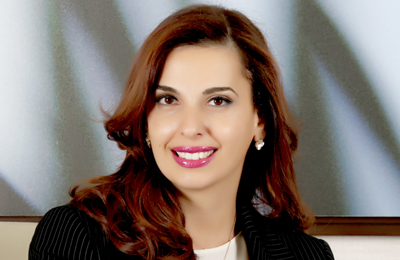Lawyers and Emotional Intelligence

Developing a high emotional quotient can give lawyers an edge in providing legal solutions. Mumtalakat’s GC explores the key components of EI.
Emotional Intelligence or “EI” is a concept that was developed by social psychologists back in the 1980s. The publication of Dr. Daniel Goleman’s book in the mid-90s “Emotional Intelligence: Why It Can Matter More Than IQ”, pushed the concept of EI into the mainstream. So what is EI and why should it be of any importance to lawyers? After all, we lawyers are trained to keep our emotions out of problem-solving and focus on thinking and the use of reasoning.
EI comprises of a set of social and emotional skills, utilised to better understand ourselves and others. It allows us to manage information relating to emotions (be they our own, or that of others), and gain awareness as to how to communicate with others and maintain relationships, especially in challenging scenarios. The idea is for a lawyer to strengthen their EI and use the information attained in an effective manner, enabling success in their work.
By all means, in our dealings with clients or colleagues or stakeholders, we do not want to cloud our judgment by subjecting emotions and personal feelings towards the task at hand. It is our duty to remain objective, focused on upholding the integrity of the position of our client and/or our employer.
That said, we are a service-orientated sector. Our work is based on interactions with clients; colleagues; executive management; support staff; members of the judiciary and so on and so forth. We analyse, negotiate, present and persuade. The relevance of EI, is to appropriate how certain emotions are exhibited with each group of people, as well as recognising how to package our emotions in order to channel them appropriately to better manage such relationships and the services we deliver, and improve on them. By recognising that our EI and improving it, we would thereby improve our stress management and decision making, as well as gain control over our impulses. To put it in the terms of Goleman, by using our cognitive abilities, we are then able to inspire others into action. We are able to better discern issues at hand and appropriate suitable solutions.
In seeking to improve our EI, there are four components that one must review and continuously develop: Self-Awareness; Self-Management; Social Awareness; and Relationship Management.
Firstly, to observe our emotions and the corresponding reactions that they draw out in us. For example, frustration over the manner in which negotiation of terms of an acquisition are being handled by the corresponding party. Recognising the emotions that are being drawn out in you during such proceedings, and how you channel such emotions to ensure the best outcome is achieved for all.
Secondly, to manage our feelings and avoid damaging communication. Know the audience before you and the recognise the suitability of what you may desire to express. Is this the right forum and the right time? By all means do not suppress your emotions, as you may in fact have an issue to highlight that could potentially damage the course of action being taken.
Thirdly, to recognise that communication is not all verbal. Observe the body language that is present before you and ‘listen’ to the unsaid, before acting accordingly. This reminds me of an acquisition that was being negotiated between external counsel of the seller and buyer (my employer being the buyer at the time). External counsel on both sides became hostile in their body language, leading to a stalemate in proceedings and my colleagues on the commercial side and I needed to step in and negotiate directly with the sellers, without counsel.
Fourthly, to connect with those around you. Exercise patience, empathy and listen to those around you. On the inside you may be hitting boiling point, however understand the situation from that of the person before you. Discuss the issue at hand based on the gained understanding, thereby diffusing the conflict at hand.
Effective lawyers are solution-providers. Tap into your emotional intelligence to enable a smoother and less stressful road to success.
Columnist:
Rima Hadid – Al Masri, board secretary & general counsel, Bahrain Mumtalakat Holding Company
























































































































